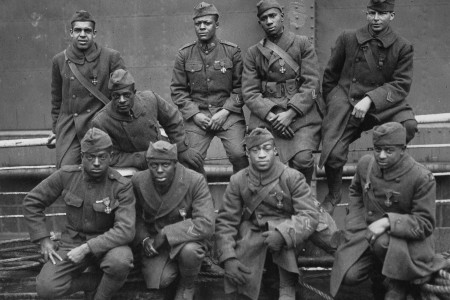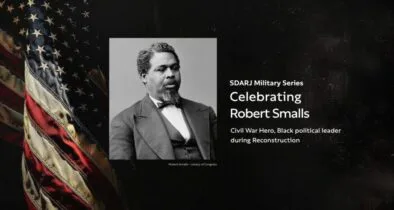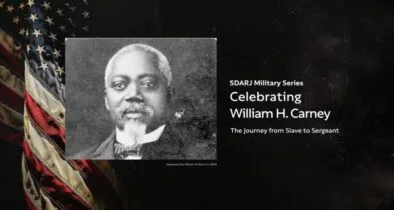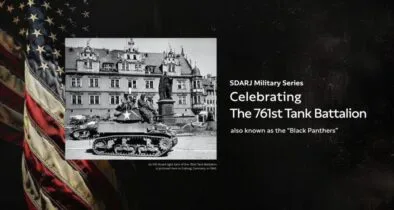Military Series – Henry Johnson and the Harlem Hellfighters
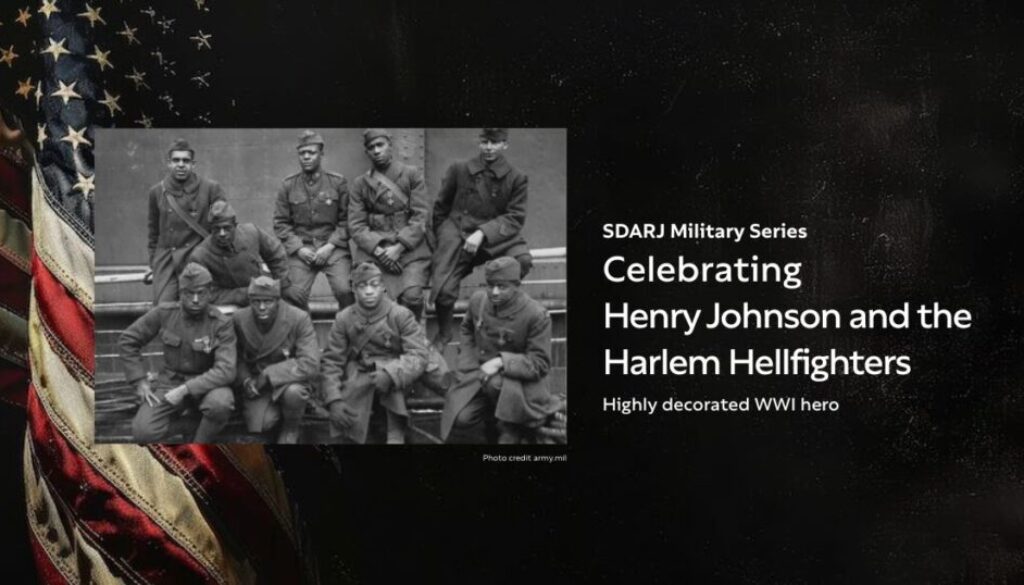
Henry Johnson, a private in the 369th Infantry Regiment (also known as the Harlem Hellfighters), was a highly decorated WWI hero. He earned the French Croix de Guerre for his bravery on May 15, 1918, while defending himself and a wounded comrade during a German attack.
The Harlem Hellfighters, the all-black unit Johnson belonged to, earned their nickname for their valor in battle and were highly decorated by the French for their bravery. Johnson’s actions are a testament to his courage and the heroism of the Harlem Hellfighters during World War I.
The 369th Infantry Regiment, which became known as the “Harlem Hellfighters,” was an all-African American unit in World War I. Aside from seeing more combat than all other U.S. outfits and having a world-famous ragtime band, the Hellfighters were also home to Pvt. Henry Johnson.
Johnson, who President Theodore Roosevelt described as one of the “five bravest Americans” who served in WWI, single-handedly fought off more than 20 Germans and saved a fellow soldier from capture – all while injured and armed only with a bolo knife. Even though he was severely injured from this hand-to-hand combat, Johnson effectively prevented the Germans from breaking through the French line.
These courageous actions earned Johnson the nickname “Black Death” from the German army, as well as the French Croix du Guerre, France’s highest military honor. After the war, Johnson returned home to a welcoming parade in his native New York City and was posthumously awarded the Medal of Honor by President Barack Obama in 2015.
The Harlem Hellfighters: The Heroic Legacy of Henry Johnson (Season 1)
Command Sgt. Maj. Louis Wilson of the New York Army National Guard accepts the Medal of Honor on behalf of World War I Pvt. Henry Johnson, who served with the 369th Infantry Regiment, known as the Harlem Hellfighters, at the White House, Washington, D.C., June 2, 2015.
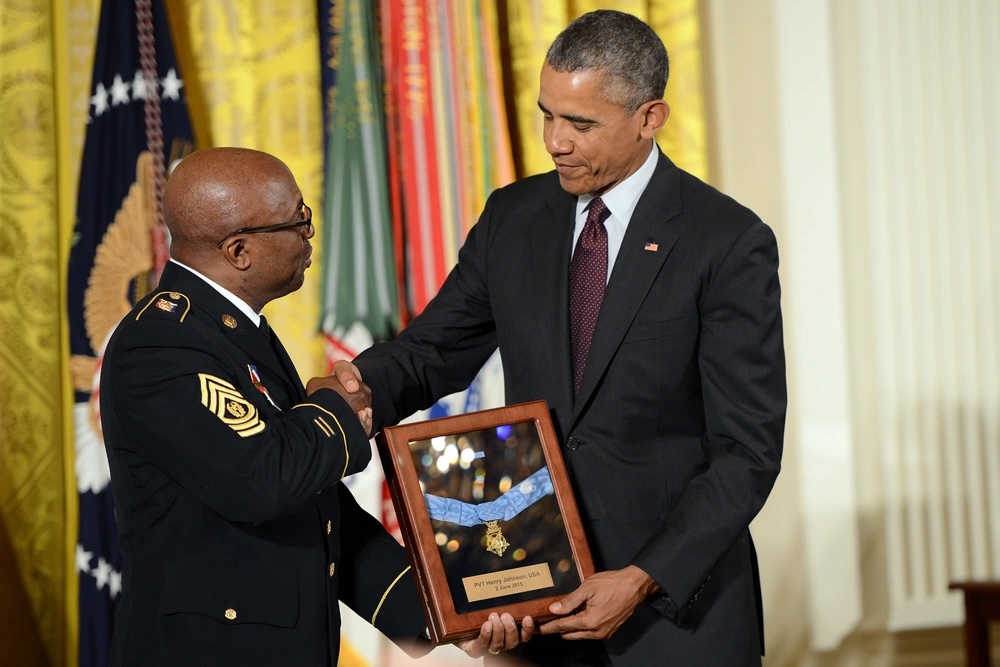

Born William Henry Johnson in Winston Salem, North Carolina, Johnson moved to New York as a teenager. He worked various jobs – as a chauffeur, soda mixer, laborer in a coal yard, and a redcap porter at Albany’s Union Station. He enlisted in the U.S. Army, June 5, 1917, and was assigned to Company C, 15th New York (Colored) Infantry Regiment – an all-black National Guard unit that would later become the 369th Infantry Regiment.
The 369th Infantry Regiment was ordered into battle in 1918, and Johnson and his unit were brigaded with a French army colonial unit in front-line combat. Johnson served one tour of duty to the western edge of the Argonne Forest in France’s Champagne region, from 1918-1919.
For his battlefield valor, Johnson became one of the first Americans to be awarded the French Croix de Guerre avec Palme, France’s highest award for valor.
Johnson returned home from his tour and was unable to return to his pre-war porter position due to the severity of his 21 combat injuries. Johnson died in July 1929. He is buried in Arlington National Cemetery in Arlington, Virginia.
Johnson was posthumously awarded the Purple Heart in 1996 and the Distinguished Service Cross in 2002.
